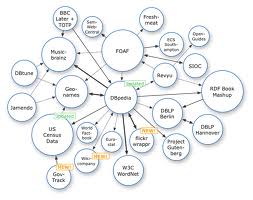Should the Freedom of Information Act (FOI) be extended to include private bodies doing public work? In the past the Public Accounts Committee (PAC) has argued it should in a report on PFI projects. In July 2012 it recommended that Network Rail, currently outside of FOI, should be covered. Nor are they alone. TheLocal Public Data Panel, a group of experts overseeing transparency and Open Data reformed across local government, warned of an erosion of public access due to the contracting out of services.
Why do it?
Extending coverage to private companies running public services, such as rail or road providers, is on the face of it logical and popular. The Coalition Agreement states it as an aim and Labour have committed to it since 2012. However, the devil lies in the detail and in the persuading of companies to do it, particularly now. But, while politicians prevaricate, some information is creeping out by the back door.
Most laws cover only information held by authorities, which can include some information held about work done by private bodies. Many companies are happy to provide information but not all, as our research on FOI and local government shows.
In the UK, Gordon Brown was the first to suggest extension of FOI to private providers in 2007. After several years of consideration it was decided to cautiously extend it to only a limited number of bodies. In 2010, the issue of extension surfaced again when new Deputy Prime Minister Nick Clegg aired the possibility that FOI could cover a wide variety of new bodies from Network Rail to utility companies. The Conservatives had also pressured the previous government to cover the nationalised bank Northern Rock.
Meanwhile, over the border in Scotland, the Scottish government began to consult on its own extension to selection of private bodies under its separate FOI Act. Again, following a long process, the final decision was to not do so.
Why Not?
Why have so few governments tried to extend coverage? As the UK and Scottish experience shows, even discussing extension can be a time consuming business, requiring a great deal of consultation and consideration.
More importantly, the arguments against extending FOI can be persuasive ones. Businesses argue that they can’t afford it (‘it’s too expensive’) and don’t need to (‘it’s unnecessary as we publish most of this already’). Here is the list of reasons for not extending FOI cited by the Scottish government, which would probably be enough to give even the most pro-openness politician pause for thought:
- ‘No compelling evidence of a problem or of unmet demand for information.
- Considerable information is already available through the relevant public authority – as well as by various statutory and regulatory means.
- Wide concern about the potential resource implications and administrative burden of extension – particularly in the current economic climate
- Most contracts stipulate co-operation between contractor and authority regarding information requests. Extension to contractors could be deemed to be a ‘discriminatory change in law’ – with costs passed to the public sector
- Potential issues arising from differing regimes operating within the UK – including competitive disadvantage
- Concerns that coverage would impact on private business engaging with the public sector and that resulting costs would be passed on to public authorities
- That extension would be contrary to Scottish Government’s aim of reducing unnecessary regulation’
Creep in By the Back Door?
Interestingly, other developments and innovations may mean some level of transparency, through FOI and now Open Data reforms, may slowly ‘creep up’ on private companies. In Ireland, for example, it was recently decided that the Ango-Irish bank could be subject to Environmental Information Regulation requests (an equivalent FOI for environmental matters).
In the UK the Ministry of Defence has begun ‘naming and shaming’ apparently poorly performing contractors. At local government level, one high profile joint venture between IBM and a set of public bodies has explicitly committed itself to FOI and many authorities are determined to make FOI access part of future contracts. In parallel, sites such as Openly Local or Contracts Finder allow the public to find out more about, for example, councils and their suppliers. The Justice Committee’s 2012 scrutiny of FOI concluded that openness clauses in contracts were the best way to move forward (see from para 233 onwards here).
Use of FOI may even creep outwards, as it has here with Train Companies asked for salary figures (train companies are not covered by FOI but one answered a FOI request anyway). Only one FOI law in the world currently wholly covers private bodies, South Africa’s Promotion of Access to Information Act 2000, though it’s not clear if or how it works. The Indian Right to Information Act 2005 also extends to previously public utility bodies now in private hands, though this was due to a ruling by its appeal body rather than by government action.
This ‘creep’ is no replacement for full FOI coverage but the whole issue of extension leaves politicians in a dilemma. They wish to hand the public more power to hold public services to account but are reluctant to upset business or add any regulatory burden, especially now. Will the onward move of transparency and Open Data leave them with no choice?
The first version of this article was originally published on the LSE policy blog.





